Our bodies face unique challenges throughout our lives as women. From puberty to pregnancy and menopause, we undergo many hormonal changes as our nutritional needs evolve! Unfortunately, many women are unaware of the nutrients needed to support women's health and well-being.

In this blog post, we'll explore the critical nutrients most women lack to support their health. Understanding and addressing these nutritional gaps is essential for optimal women's health.
Women are the ones who feed; they've always been the ones to take care of the pantry, prepare and serve food, and ensure the welfare of the whole family.
Yet women are the ones today who are affected prematurely and massively by non-communicable diseases with fatal outcomes.
Differences between genders
Body composition
Women are, on average, smaller and shorter than men and have lower body weights. They have less lean muscle and bone mass than men, so they are more prone to fractures and have more body fat in old age.
Calorie intake
Women, in general, consume less energy than men. A man needs between 2000 and 3000 calories a day, while a woman needs 1600 to 2000 calories. Thus, a man has more chances of eating a lot of nutrients than a woman. It's, therefore, important for women to consume more nutrient-dense foods to meet their higher nutrient needs without exceeding caloric requirements.
Fat distribution
Body fat distribution is also different: women accumulate subcutaneous fat in the lower part of the body (hips, buttocks, and thighs), while men accumulate mainly visceral fat, i.e., localized at the level of the abdomen. Visceral fat is associated with an increased risk of cardiovascular disease and type 2 diabetes.
How fats are used is also very different and is strongly affected by hormonal patterns; men use them more efficiently to produce energy; on the other hand, women accumulate fat to respond to a biological function that is fundamental for the species, such as procreation and lactation, thus ensuring the survival of offspring.
During menopause, women experience an increase in visceral fat, typical of men, due to the sharp decrease in estrogen hormones.
Unique nutritional for women
There are several reasons why women's nutrition differs from men's based on physiological, hormonal, and life stage differences. These differences aren't huge enough to require different meals for each gender; however, it's crucial for women and girls to be aware of these special nutritional needs.
Hormonal fluctuations and nutritional requirements
Hormonal changes throughout a woman's life significantly impact her nutritional requirements. These fluctuations can influence appetite, metabolism, and the body's ability to absorb and utilize nutrients.
- During puberty, hormones trigger rapid growth and development, increasing energy and nutrient requirements such as protein, calcium, iron, and vitamin D.
- Pregnancy is a period of intense physiological changes, demanding increased nutrient intake to support both the mother and the developing fetus. The future mom should, therefore, increase the intake of folate (B9), iron, calcium, magnesium, vitamin D, and omega 3.
- Menopause marks a massive reduction of estrogen production, leading to changes in metabolism, bone density, and cardiovascular health. Specific nutrients are required to prevent bone and muscle loss, heart health, and menopausal symptoms. Increasing calcium, magnesium, vitamin D, Omega 3, and fiber should be considered. Intake of phytoestrogens can interact with the body's estrogen receptors to decrease estrogen's adverse effects, like excess heavy periods, breast tenderness, PMS, or fibroids. On the other hand, they can help replace the loss of estrogen, offering some relief related to menopause.
Common nutrient deficiencies in women
Most women meet nutritional challenges, and understanding and addressing these deficiencies is essential for maintaining optimal women's health.
- Vitamin D is also known as the "sunshine vitamin" because our bodies primarily produce it when exposed to the sun's ultraviolet B (UVB) rays. While it plays a crucial role in various bodily functions, vitamin D deficiency is one of the most common nutritional deficiencies among women. Vitamin D is essential for strong bones and muscles, immune systems, cell function, brain, and heart health.
- B vitamins are a group of water-soluble vitamins essential for various bodily functions. They're necessary for energy production, cell growth, development, and maintaining a healthy nervous system. Women of all ages need to increase B2, B3, B9, and B12.
- Omega-3 fatty acids are particularly essential for women's health due to the unique physiological changes and health challenges women face throughout their lives. Hormonal changes during puberty, pregnancy, and menopause can affect heart health and metabolism. These fatty acids are essential for the fetus's brain and eye formation.
- Fats are the building blocks of estrogen and progesterone. Not eating enough fat can cause irregular or heavy periods, PMS, or not ovulating. It is best to choose plant-based fats more often than animal-based fats. The unsaturated fats in plant-based fats support a healthy cardiovascular system.
- Magnesium: This mineral is associated with hormonal conditions like osteoporosis and premenstrual syndrome. Mg is a crucial mineral during pregnancy for proper development of the baby.

Women's health is intricately linked to their nutrition.
From hormonal differences to unique nutritional requirements, understanding how women's nutrition differs from men's is essential for overall well-being. Understanding and addressing common nutrient deficiencies can significantly improve our health.
You can take proactive steps to support your health and vitality by incorporating foods rich in these nutrients into your diet and seeking professional advice when necessary.
Remember, a balanced diet and regular exercise are essential components of a healthy lifestyle for women of all ages.
You've got the power to heal yourself, Githu.




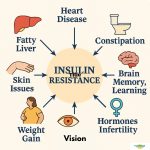
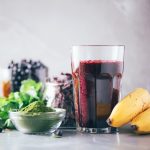
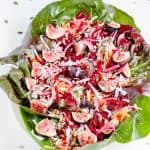

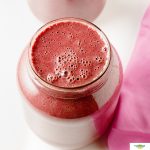
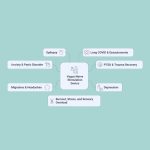
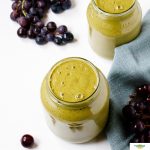


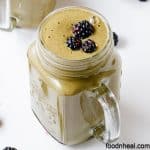




Comments
No Comments